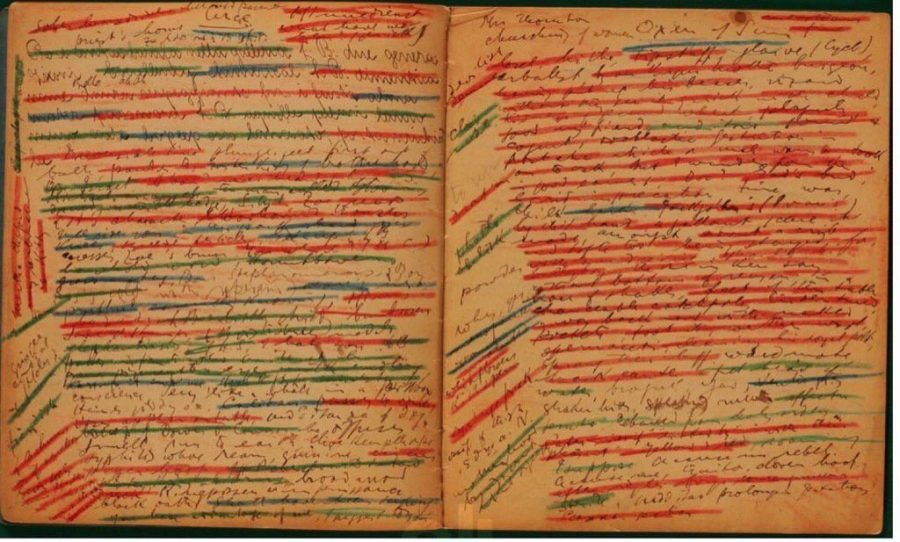
The research process constantly encounters small questions from others and myself. I had two questions for the last few months that struck my thinking. The first one related to Deleuze that someone claimed he is too masculine to read further. The second was about his concept of Chaos and why we should discuss Chaos at all. Both are interesting to think about, but hard to get the answer.
To answer the question that Deleuze is too masculine, I should consider the meaning of masculinity and the context of the question raised. The person who told me about masculinity also had a question about the relationship between film and philosophy but nothing further specific explanation concerning that question. So, the following sentences will be purely hypothetical by me. The first hypothesis is that the meaning of masculinity, especially in the context of French philosophy, might deliver the sense that is a counter-example of the contemporary metatheory or after the movement in against Theory. As Rodowick claimed, the concept of “naming crisis” is all ground of contemporary theory since many theorists, including David Bordwell and Noël Carroll, objected to the idea of big Theory and attempted to merge it with natural scientific data proved analysis. The film theory in the 20th century was connected to the French philosophy and German psychoanalytic approach to the human inner mind tradition, which might disregard the materialistic and mechanical connection to the human practice in filmmaking. If this is the connection what that person pointed as a masculine, which might indicate negative character, the meaning of the “masculine Deleuze” will be the “Theorist Deleuze,” who contrived the artistic practice into the philosophical theory without sincere advocation of craftsmanship.
The second hypothesis on “masculine Deleuze” is the connection to the position he was taking in his philosophical concepts, especially when he was against Hegel and dialectic. It is plausible to say because that person follows Derrida’s concept of hauntology. According to Catherine Malabou, Deleuze described a fixed image of Hegel despite the fact that Deleuze focuses on the multiplicity of the subject, and he didn’t give Hegel any space for its fluidity. Malabou’s idea is quite interesting to see Deleuze from a different angle. I believe this is worth reading further about her concept of “plasticity” because the Deleuzian approach also carries a danger that might cause infinite expansion rather than compound its specificity. Deleuze’s multiplicity indirectly investigates the subject by clarifying the abnormality of individuality and shifting the perspective in different spaces. However, this is always an indirect view of the form, therefore, mystifying the form itself.
In conclusion, her “masculine Deleuze” therefore expose two problems the Deleuzian approach has in the historical (postmodernism) philosophical (fixed and indirect multiplicity) position. These approaches are also connected to the problem of Chaos, in which Deleuze focused on the writing of aesthetic practice. His book Francis Bacon: The Logic of Sensation pays attention to the relationship between common sense or cliché and chaos in the art practice. As he believed that philosophy, art, and science are the creative practice that produces different outcomes, the triumvirate of creative practice shares certain questions and concerns. For him, the integration of philosophy and art is the way of creating abnormality in philosophy, drawing atypical diagrams from the limitations of philosophy in his lifetime. The question of Chaos is directly connected to the concern in the post-theory and contemporary research since the postmodern theories unleash the singularities and expand into small particles. It simultaneously causes freedom and confusion and doesn’t generate any form that makes it visible.
Deleuze mentioned in Francis Bacon that total chaos makes figures invisible and remains only the traces of “what-was-before.” I believe this is one reason he attempted to analyse the cinema as a whole than individuality in comparison to his previous writings. To establish a liquid form, the structure is a necessity to engage with freeform, the individual specificity and abnormality, as a result, abstracted, and ironically, trapped in that structure and law. On the other hand, the individual accentuation loses its force to capture the outline of the form due to the idiosyncrasy of single work. In this sense, the balance of the chaos and the abstract is essential to maintain the subjectivity, otherwise loses itself, either crumbling into particles or shrinking as atoms.
The biggest problem with Deleuze’s concept is that he wrote his books, assuming the reader would read all his previous writings. His book balance only makes sense when all of his books are compiled in one form. Many of his concepts change their figure depending on the context and are sometimes disguised in different terms. It is also a considerable challenge for whom use Deleuze’s concept in the only context of art, cinema, or literature.

Leave a Reply